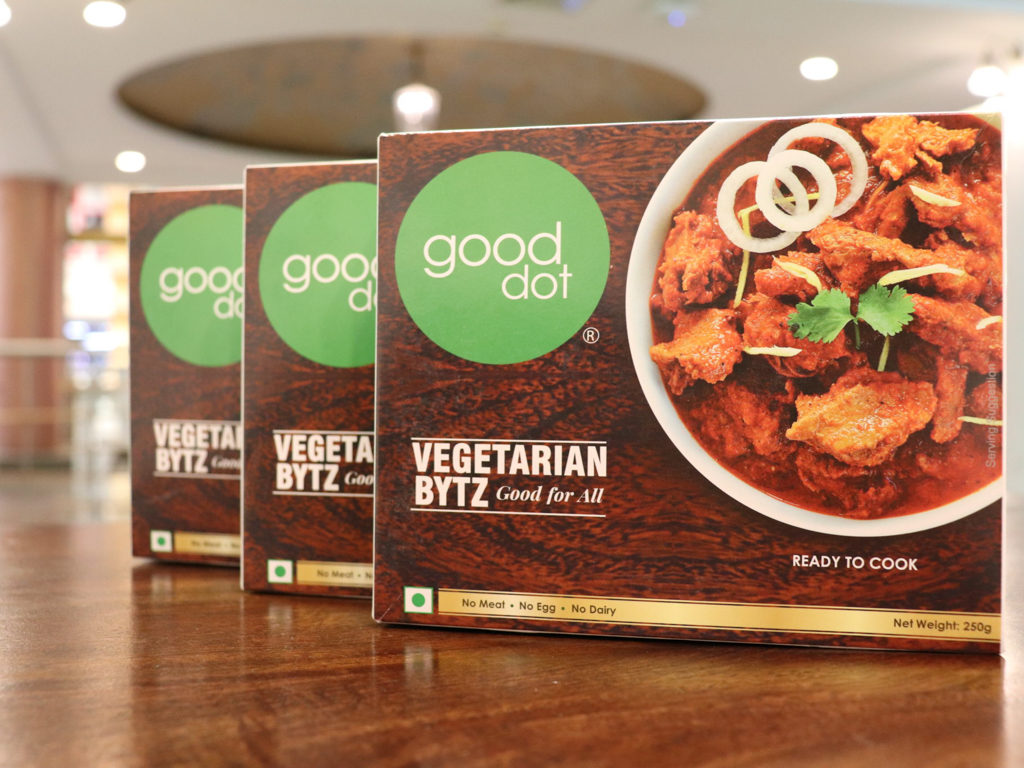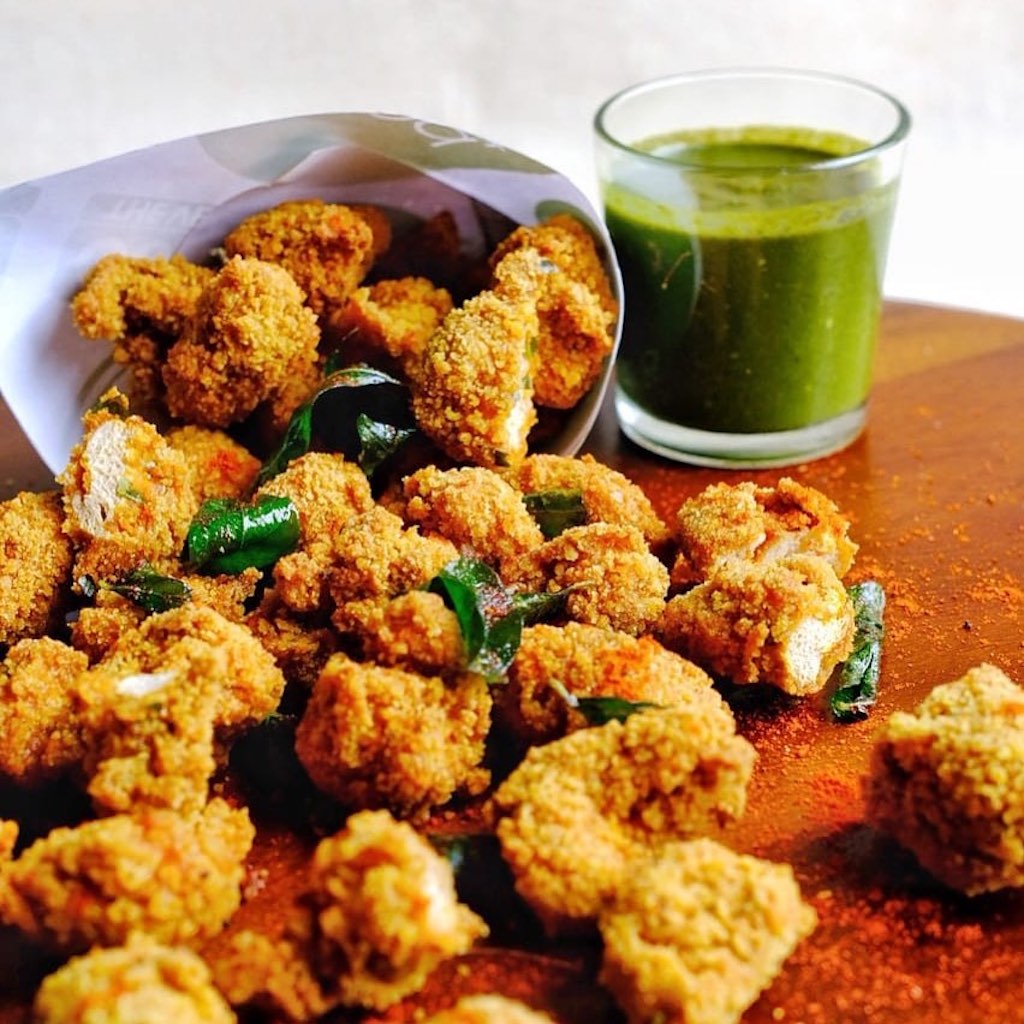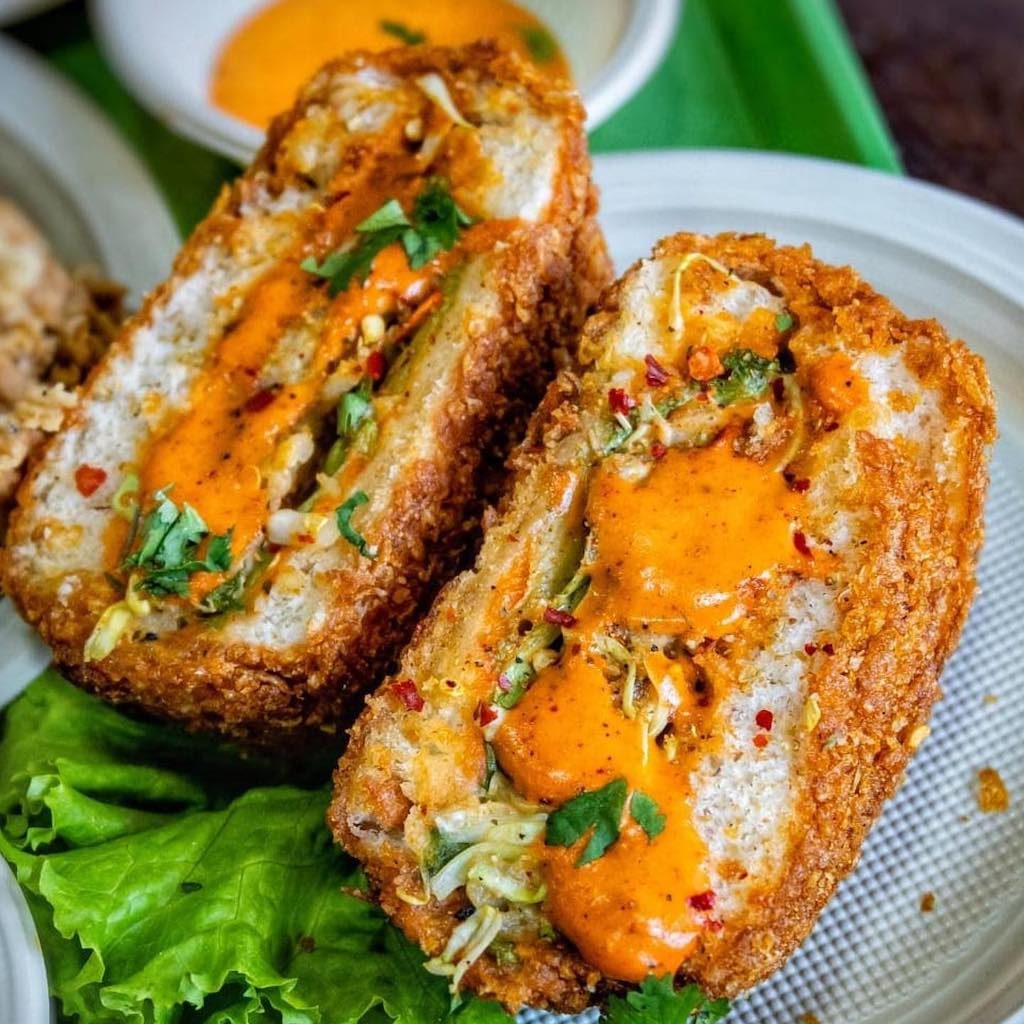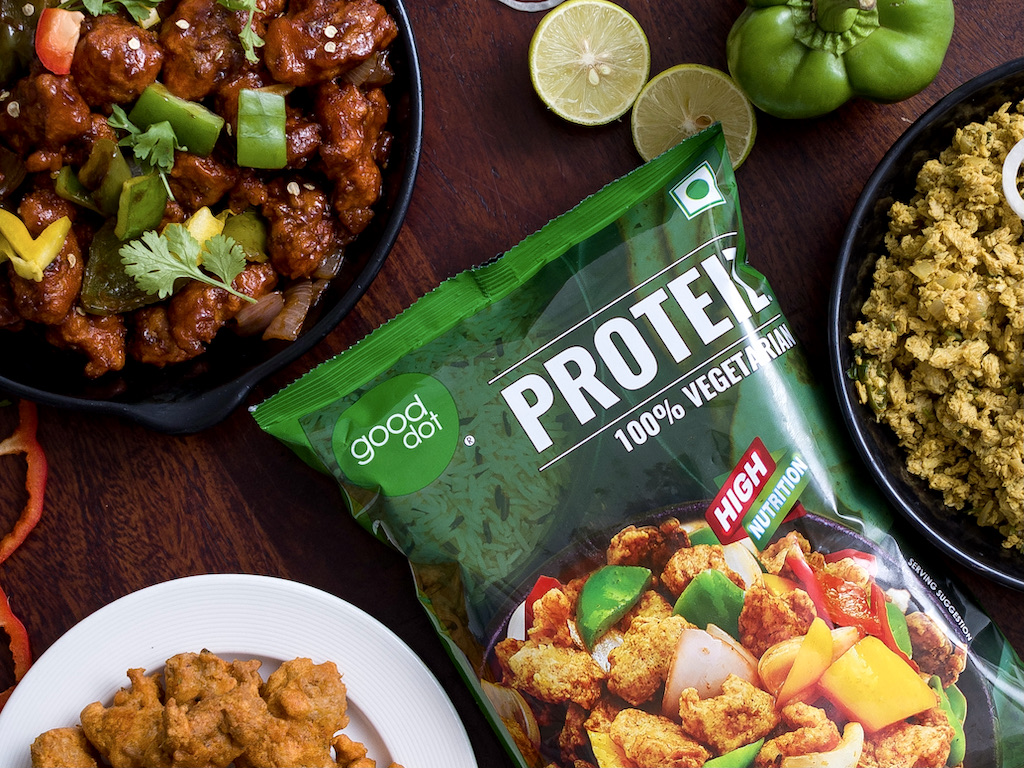3 Mins Read
GoodDot, one of India’s earliest vegan meat players, has just raised new funding from Sixth Sense, the country’s first homegrown consumer-focused VC. The financing is part of GoodDot’s pre-Series A and marks the first VC investment into the Indian plant-based meat segment. It comes ahead of the startup’s planned expansion into the U.S. and European markets.
GoodDot has raised an undisclosed amount from Sixth Sense, as part of the startup’s pre-Series A. The Udaipur-based brand is known as a pioneer in India’s plant-based meat industry and is set to use the funds to support its global expansion. Sixth Sense, which manages over $350 million across three funds, says that their investment marks the first VC funding into the Indian plant-based meat market.

International expansion
The new funds will help accelerate the startup’s global expansion. Having already entered Canada, Dubai, Nepal, South Africa, and Nepal over the past year, GoodDot says that it plans to roll out in the U.S. and Europe in its next phase.
“We are delighted to have concluded this round of funding with Sixth Sense Ventures,” commented GoodDot co-founder and CEO Abhishek Sinha, who described the funding as “the epitome of an ESG-focused investment.”
“We are confident this strong partnership will enable GoodDot to position itself as a force to be reckoned within the space of plant-based meats not only in India, but across the world,” Sinha added.
The CEO founded the food tech with Deepak Parihar back in 2016, and quickly grew the brand into one of the biggest plant-based leaders. GoodDot is known for its vegan mutton “bytz”, chicken-free chunks and other plant-based ready meals tailored to the Indian appetite. The startup is also behind GoodDo, its sister venture and India’s first vegan fast-food chain.

Doubling down on QSR
Aside from expanding GoodDot’s retail distribution globally, which now spans 7,500 points of sales, the firm plans to use the funds to ramp up its QSR brands. GoodDo is one of them, the other being GoodKhana, which operates in Mumbai, Delhi, Udaipur, and Kathmandu with a 100% vegan fast food menu at affordable prices.
Part of this growth will require further investment into R&D and marketing, to help develop both chain’s menus and create new plant-based offerings amid surging demand.
Nikhil Vora, founder and CEO of Sixth Sense, says that GoodDot is poised to capitalise on this demand for more plant-based options for mainstream consumers—many of whom aren’t exclusively vegan or vegetarian, but are flexitarian. A recent Euromonitor survey estimates that as many as 42% of all consumers globally now consider themselves flexitarians.

In the U.S., the market where GoodDot is now preparing to launch, retail sales of plant-based foods topped $7 billion for the first time in 2020.
“We believe that going forward, consumption preferences will evolve increasingly fast towards meat alternatives on the back of health, ecological or compassion related reasons,” said Vora. He added that GoodDot has already received “validation” from the hospitality industry, and endorsement from mainstream food channels including chains like Domino’s.
“GoodDot has emerged to be the leader in plant-based meat in India,” explained Vora. “Super elated to be part of a business which is trying to make the world a compassionate place.”
Other plant-based players in India’s alternative protein space include PlantMade, Greenest, Evo Foods and Goodmylk, to name a few.
All images courtesy of GoodDot.




